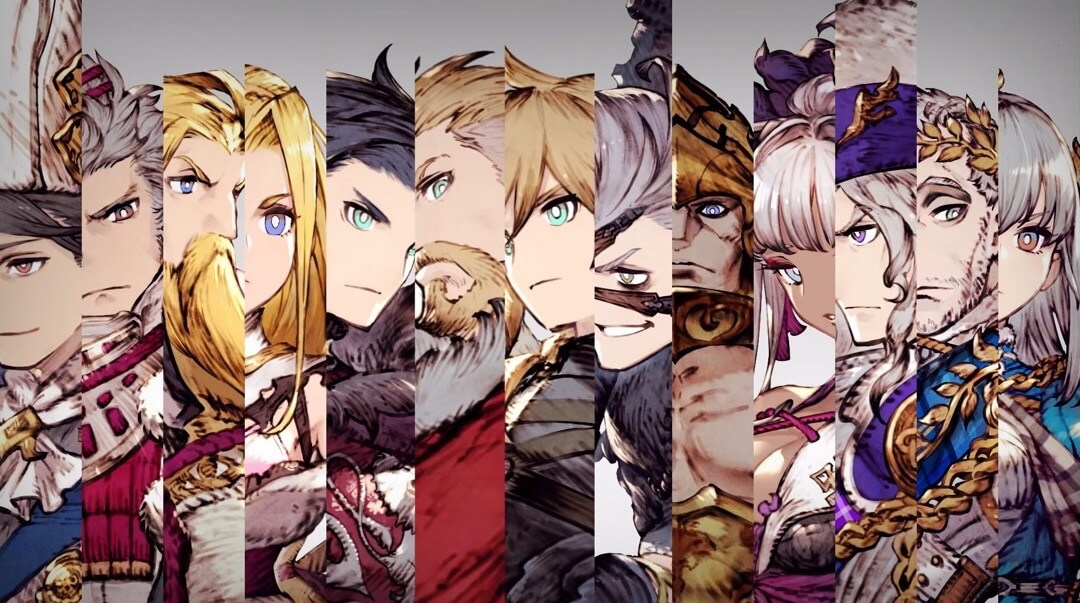So, what does Microsoft buying Activision Blizzard really mean for regular game developers — and game platforms? Well, firstly, it’s fractally complex. No one deal like this is transformative, and no one deal can significantly hasten the path to “the future.”
But this acquisition — which used the equivalent of over half of Microsoft’s $130 billion of “cash on hand,” by the way — feels significantly different from the ZeniMax/Bethesda deal, and not just in terms of sheer money paid.
The Bethesda acquisition, which was “just” $8.1 billion, felt a bit more like “we would like to own more great content and give Game Pass a large boost, and this is a great way to spend some money.” The $68.7 billion Activision Blizzard deal feels more like “we see what other big companies like Apple and Facebook are planning for the future of the internet and games, and this is our response.”
So let’s drill down into the multiple angles on this deal. We’ll end up at a place where we can decode ramifications for everyone else making games not, uh, owned by Microsoft.
What even is a platform? Or (ugh) the metaverse?
Where it gets complicated is how the idea of a “game platform” is evolving. Sure, Xbox is a hardware platform; that’s the traditional use of the word. But Game Pass is a platform that spans multiple types of hardware — Xbox consoles, PCs, cloud-enabled mobile devices, and more.
And beyond that, games (Minecraft, Call of Duty, World of Warcraft, you get the idea) can be platforms themselves — perhaps, in Microsoft’s current parlance, “metaverse platforms.” Yes, I know a lot of us aren’t fans of the word metaverse being slung around too aggressively, given its mushy nature and Facebook’s attempted commandeering of the conversation around it.
But large companies need to stake out their own views on what is a stock-moving word right now. Which is why Microsoft CEO Satya Nadella said as part of the Activision Blizzard announcement: “In gaming, we see the metaverse as a collection of communities and individual identities anchored in strong content franchises accessible on every device.”
This is a clear indication that Microsoft believes a monolithic approach is going to fail. And Microsoft’s point appears to be that “cool video game stuff for everyone on all devices” is the way to go. Thus, by combining so many of these in-app purchase-, microtransaction-, or subscription-based business models, you can:
- make profitable revenue on all of the other people’s hardware platforms with your game platforms (such as Minecraft), while also …
- creating growth and profit on game subscription platforms (Game Pass) that include games with multiple business models, including “pay to play once” games, while also …
- generating revenue — but not necessarily pushing for lots of profit — on your actual game hardware platforms (Xbox Series X).
Think I’m getting a bit hung up on the definition of a platform? This isn’t just semantics, and it has real ramifications for game developers. For example, imagine if the only serious money you could make as a game dev was to make your game inside an interconnected universe controlled by a single company.
This is probably the ultimate ideal — implicitly, if not explicitly — for some of the largest platform holders out there. Facebook, in particular, has a closed approach to its platform, and seems to dream of the successor to the mobile internet being one company with a dominant metaverse offering. But that is not where Microsoft is going.
Microsoft’s semi-forced pivot to ‘open’
Perhaps it’s a hangover from the antitrust lawsuits of the 1990s, and how they affected Microsoft culturally, but Windows by and large being an “open platform” for developers, and recent wars between Microsoft and Apple (in particular!), means that Microsoft has an allergy to restrictive hardware platforms and to distribution “taxes.”
Another quote from Nadella during Tuesday’s announcement that includes clear Apple shade built into it: “Today we face strong global competition from companies that generate more revenue from game distribution than we do from our share of game sales and subscriptions. We need more innovation and investment in content creation and fewer constraints on distribution.”
It’s notable that Microsoft sees Apple as the “bridge troll,” sitting there waiting for its 30% tax on any goods and services that pass over it on the way to iOS platforms. Of course, Xbox platforms also levy the same tax on third parties, albeit far fewer of them.
But being the underdog in the console wars vs. Sony, and having a corporate parent with deep pockets, has allowed Xbox to pivot away from this traditional model and aggressively scale Game Pass.
(In particular, if your first-party games aren’t really firing on all cylinders, that gives you carte blanche to change your entire business model — you’re not really losing much money in doing so. So this Xbox disadvantage got turned into a plus.)
And you can definitely argue that “we make or package together something and demand money for it” is better, perception-wise, than “we build a hardware platform and sit there to tax everything coming through it.” Xbox has been getting very good PR from fans and developers alike for this approach.
The deal’s real ramifications for developers?
There won’t immediately be major changes to how game developers see the market: not today, not tomorrow, not the day the Activision Blizzard/Microsoft transaction closes.
But the deal does allow more of the industry’s biggest games to be shifted toward Microsoft’s business model. And that will nudge the industry further toward that model over time.
If you were to ask me what the model for games is going to be in five to 10 years, I suspect it may be the following:
- If you’re making a “pay once, play once” PC/console video game of any significant budget, or if you want multimillion-player distribution for it at launch, you may need to put it on a subscription service to be successful — whether that be Game Pass, PlayStation Plus, or others such as Netflix. These types of games will absolutely still exist, though!
- If you’re making a games-as-a-service title that’s paid but also has microtransactions in it, such as Grand Theft Auto 5/GTA Online? You have more ability to go it alone, but you may want to use a subscription service to find new players. That comes with the bonuses that (a) the Game Pass-like service has to pay you for inclusion, and (b) you’ll get more money from its subscribers over time.
- If you’re a smaller game dev, and you want to keep making games with whatever business model you’d like for open, non-subscription platforms like Steam? Then go for it! I don’t believe Valve intends to change its business model at any time in the future. And there’s always going to be space for breakout hits created on these open services.
In the medium term, there are clear possible disadvantages for traditional game developers here. Here are some of the most obvious that I see, and most are Game Pass-centric:
- If Microsoft is moving many more big games into Game Pass — first from Bethesda, and later from Activision Blizzard — it’s going to push even more choice and attention on the top end of titles. If Microsoft can keep scaling its user base, people will still check out smaller games on Game Pass. But there’s definitely a “big get bigger” situation here, especially given microtransaction-centric games as a service are often so large, polished, and attention-grabbing.
- It continues a larger trend, which is that Microsoft is highlighting Game Pass on its hardware platforms at the expense of “regular pay-once games” that are not on Game Pass. Indie devs never did that well on Xbox anyhow. But the lack of focus/discovery going forward will continue to disadvantage them.
- As Game Pass and similar services get more important, the games that do make it into those services reach a massive audience. But those that don’t may have issues. And negotiation with Game Pass-like entities is essentially a disintermediation. You now have to pass another gatekeeper — a content gatekeeper, in this case — to make it to the “big stage.”
Ultimately, I think most game developers won’t really know what to think about this deal. It’s another “big get bigger” deal, and it’s another “large tech companies are eating the world” deal, which is at least mildly disconcerting.
But it’s definitely coming from an organization that currently seems to care about video games and preserving the creative independence of game developers. Which is something that can’t always be said for a number of other massive tech companies in the “we want the metaverse” space.
Xbox is an organization that is doing a great job of spinning its new role as a provider of high-quality content to everyone. But it’s using its parent company’s cash hoard to do it, which is massively disadvantaging competitors like Sony and putting their perfectly reasonable business model on the back foot.
Is that fair? I guess various global governments will have to decide that. And if they’re fine with that, then … that’s capitalism, folks, and we’re all just along for the ride.
Simon Carless is the founder of GameDiscoverCo, a company for game developers and publishers based around one simple issue: How do players find, buy and enjoy your premium PC or console game? They run the GameDiscoverCo newsletter.
Source: Polygon






















